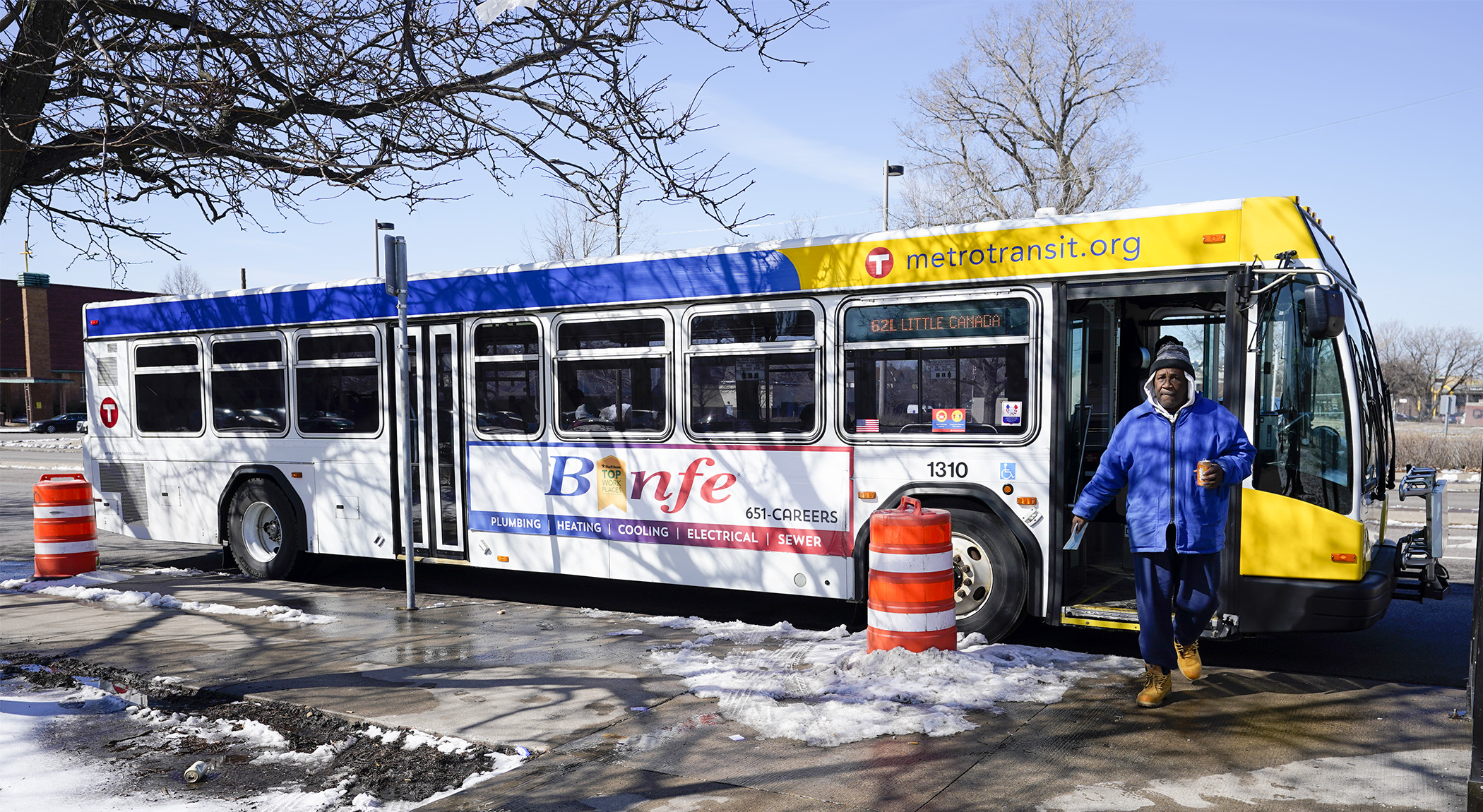No fare — or, no fair? Free ride pilot project included in bus improvement bill

Waiting in the bitter cold there may be no more sinking feeling than watching a bus pass your stop because it is full, not knowing when the next one will come. Unreliability and discomfort often drive people to their cars, starting a downward spiral of fewer riders meaning fewer routes followed by even less ridership.
Ensuring people riding buses have better experiences and making the system more attractive to potential riders is behind the proposed “Local Bus and Transit Improvement Act,” which would improve bus stops and shelters, establish a working group to look at priority signals for buses, and explore whether free ridership for some is a viable option for improving efficiency.
Heard Wednesday night by the House Transportation Finance and Policy Committee, HF2604 was laid over for possible omnibus bill inclusion.
Rep. Sydney Jordan (DFL-Mpls), the bill sponsor, said if local buses could operate more efficiently, the pain of decreases in services could be blunted by improved speed and reliability. “We have a transit system. Let’s take care of it.”
According to a fiscal note, the estimated cost for the program would be $103.2 million in fiscal year 2024, of which $79 million would be to purchase 80 zero-emission buses. About $4 million would be used to make improvements to 120 bus shelters, replace 100 others and build 65 new heated, lighted shelters.
Offering free rides for 18 months on the four most-used routes is estimated to mean $17.6 million in foregone revenue. A free fare pilot program is a natural continuation of a reduced fare pilot program in September and October 2021, Jordan said.
Rep. Shane Hudella (R-Hastinga) is concerned about offering free rides. Building nicer shelters and faster bus rides are beneficial, but someone has to pay for it, he said.
Pilot studies in Boston have shown that free rides can save money by saving time spent collecting fares and funneling people through one door, and all-door boarding can mean significant cost savings, said MJ Carpio, campaign manager for Move Minnesota.
Related Articles
Search Session Daily
Advanced Search OptionsPriority Dailies
Legislative leaders set 2026 committee deadlines
By Lisa Kaczke Legislative leaders on Tuesday officially set the timeline for getting bills through the committee process during the upcoming 2026 session.
Here are the three deadlines for...
Legislative leaders on Tuesday officially set the timeline for getting bills through the committee process during the upcoming 2026 session.
Here are the three deadlines for...